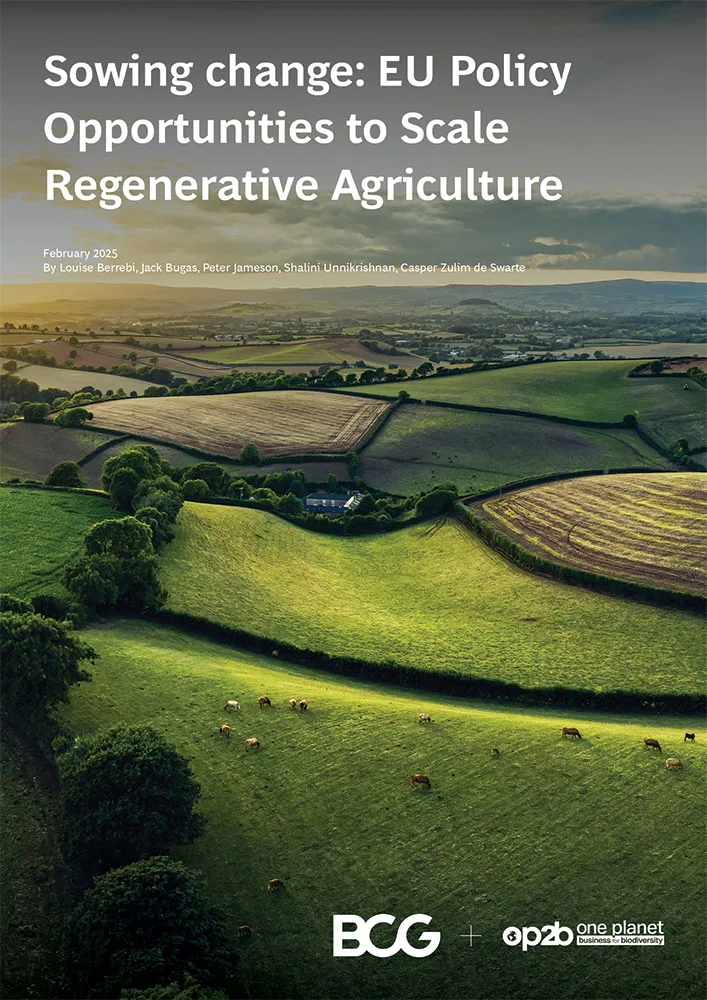OP2B, Boston Consulting Group (BCG), and Carlsberg Group conducted a policy analysis resulting in a clear roadmap to overcoming barriers and accelerating the transition to regenerative agriculture across the EU through six actionable opportunities for EU policymakers. By working together, businesses, policymakers, and farmers can create a resilient food system that benefits people, the planet, and the economy.
A Path to Sustainability and Resilience
The agri-food system faces mounting challenges—rising demand, climate-related risks, resource constraints, and pressure to reduce emissions. Regenerative agriculture presents a transformative response by improving soil health, enhancing biodiversity, and increasing water efficiency, all while offering farmers a viable business case and contributing to climate resilience.
This report identifies four key drivers to scale regenerative agriculture:
- Sustainable economics
- Cross-value chain partnerships
- Standardized metrics
- Farmer training
Additionally, supportive policy frameworks play a crucial enabling role in this transition.
A Unique Policy Opportunity in the EU
With the EU’s leadership in climate and sustainability policy, now is the time to accelerate regenerative agriculture. Regulatory advancements have been limited globally, and existing EU legislation lacks the alignment and funding needed to fully support key drivers. However, major policy milestones—such as the CAP review and the Strategic Dialogue on the Future of EU Agriculture—present a timely opportunity to embed regenerative agriculture into EU policy.
Six Key Opportunities for Transition
Food and beverage companies, alongside farmer organizations, have identified six key opportunities to promote farmer-centric regenerative agriculture and create a supportive ecosystem for transition:
- Establish an EU-level outcome-based definition with clear key performance indicators (KPIs).
- Develop an EU-wide protocol for measurement, impact assessment, and reporting.
- Integrate regenerative agriculture into CAP Pillar I to link payments with environmental outcomes.
- Enhance financing solutions through the European Investment Bank (EIB), land banks, public-private partnerships, and capital loan programs.
- Create a knowledge-sharing program combining in-person engagement with an online platform for case studies, financing opportunities, and peer-to-peer learning.
- Develop a public-private partnership initiative to support ecosystem services valorization and link payments to ecosystem service outcomes.
Outline




